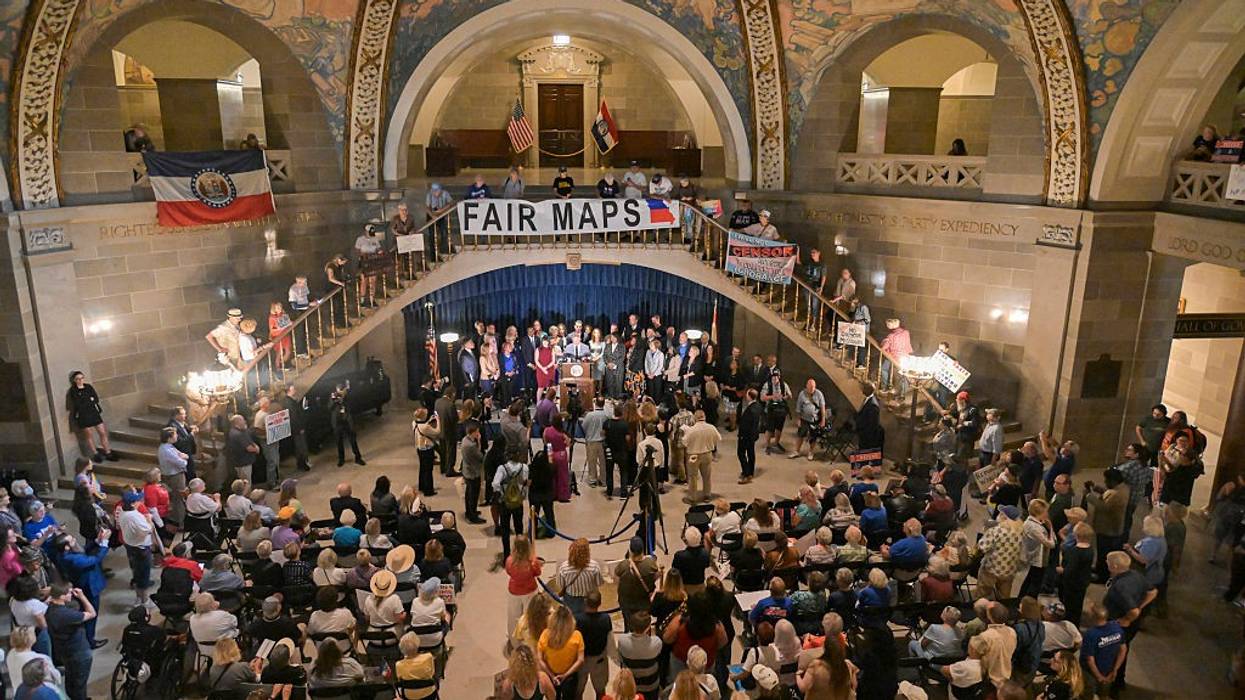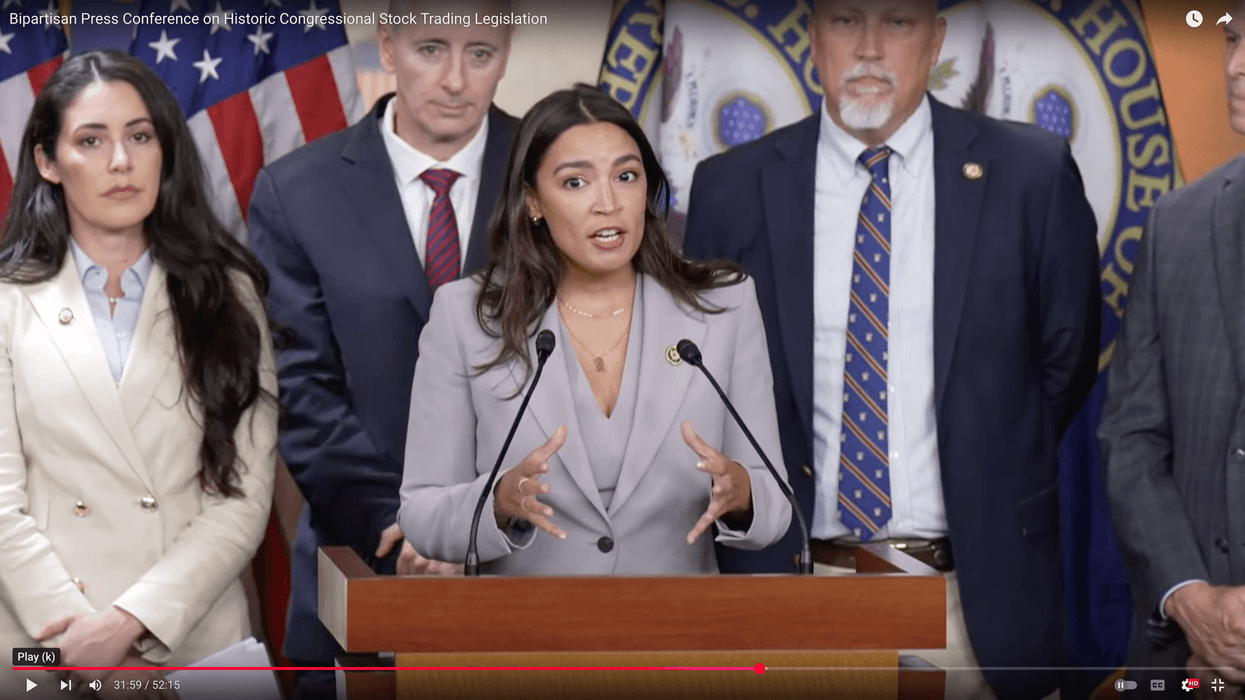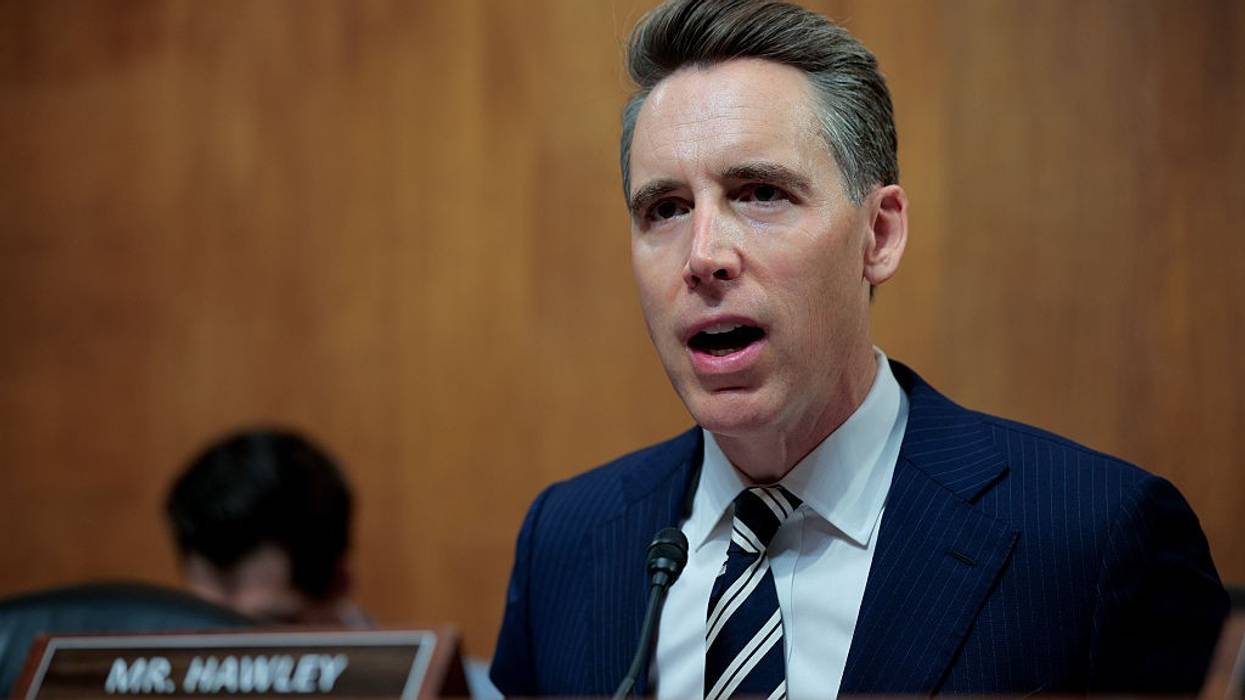'Unconstitutional Power Grab': Missouri Voters Sue After GOP Passes Rigged Map
"If our communities are needlessly split by these new lines, we would no longer see our strong values reflected in the priorities of our congressional representatives," said plaintiff Terrence Wise.
Missouri voters sued on Friday after GOP state legislators sent a new congressional map, rigged for Republicans at the request of US President Donald Trump, to Gov. Mike Kehoe's desk.
Republicans' pending map for the 2026 midterm elections targets the 5th Congressional District, currently represented by Democratic Rep. Emanuel Cleaver. Voters from the district, including Missouri Workers Center leader Terrence Wise, launched the legal challenge, represented by the Campaign Legal Center along with the state and national ACLU.
"Kansas City has been home for me my entire adult life," said Wise. "Voting is an important tool in our toolbox, so that we have the freedom to make our voices heard through a member of Congress who understands Kansas City's history of racial and economic segregation along the Troost Divide, and represents our needs. If our communities are needlessly split by these new lines, we would no longer see our strong values reflected in the priorities of our congressional representatives."
Marc Elias, the founder of Democracy Docket and an elections attorney for Democrats, also repeatedly vowed this week that "if and when the GOP enacts this map, Missouri will be sued."
"Missouri Republicans have ignored the demands of their constituents in order to follow the demands of a power-hungry administration in Washington."
The governor called a special session for the map after Texas Republicans successfully redrew their congressional districts to appease Trump last month. Kehoe said on social media Friday that "the Missouri FIRST Map has officially passed the Missouri Senate and is now headed to my desk, where we will review the legislation and sign it into law soon."
Former US Attorney General Eric Holder Jr., who now leads the National Democratic Redistricting Committee, warned in a statement that "Missouri is now poised to join North Carolina and Texas as among the most egregiously gerrymandered states in the nation. Missouri Republicans have ignored the demands of their constituents in order to follow the demands of a power-hungry administration in Washington."
"Missouri Republicans rejected a similar gerrymander just three years ago," Holder pointed out. "But now they have caved to anti-democracy politicians and powerful special interests in Washington who ordered them to rig the map. These same forces ripped away healthcare from millions of Americans and handed out a tax cut to the very wealthy."
"Republicans in Congress and the White House are terrified of a system where both parties can compete for the House majority, and instead seek a system that shields them from accountability at the ballot box," he added. "Missourians will not have fair and effective representation under this new, truly shameful gerrymander. It is not only legally indefensible, it is also morally wrong."
As The Kansas City Star reported, Democrats, who hold just 10 of the Missouri Senate's 34 seats, "attempted to block the legislation from coming to a vote through multiple filibusters," but "Republicans deployed a series of rarely used procedural maneuvers to shut down the filibusters and force a vote," ultimately passing the House-approved bill 21-11 on Friday.
"What we're seeing in Jefferson City isn't just a gerrymander, it's a dangerous precedent," said Missouri state Rep. Ray Reed (D-83), who engaged in a sit-in at the House to protest the bill. "Our institutions only work when we respect the process. Skipping debate, shutting out voices, and following orders from Donald Trump undermines the very foundation of our democracy."
Cleaver said in a Friday statement that he was "deeply disappointed" with the state Legislature, and he knows "the people of Missouri share in that disappointment."
"Despite tens of thousands of Missourians taking the time to call their state lawmakers and travel to Jefferson City to voice their opposition," Cleaver said, "Republicans in the Missouri Legislature followed the marching orders dictated by power brokers in DC and took the unprecedented step of enacting mid-decade redistricting without an updated census."
"I want to be very clear to those who are frustrated by today's outcome: This fight is far from over," he added. "Together, in the courts and in the streets, we will continue pushing to ensure the law is upheld, justice prevails, and this unconstitutional gerrymander is defeated."
In addition to court challenges, the new congressional map is also the target of People NOT Politicians, a group behind a ballot measure that aims to overturn it.
"This is nothing less than an unconstitutional power grab—a blatant attempt to rig the 2026 elections before a single vote is cast," Elsa Rainey, a spokesperson for the group, said after the Senate vote. "It violates Missouri law, slices apart communities, and strikes at the core of our democratic system."
During Kehoe's special session, Missouri Republicans also passed an attack on citizen initiative petitions that, if approved by voters, will make it harder to pass future amendments to the state constitution—an effort inspired by GOP anger over progressive victories at the ballot box on abortion rights, Medicaid, and recreational marijuana.
"By calling this special session and targeting citizens' right to access the ballot measure process, Missouri's governor and his allies in the state Legislature are joining a growing national movement dedicated to silencing citizens and undermining our democracy," said Kelly Hall, executive director of the Fairness Project.
The Fairness Project, which advocates for passing progressive policy via direct democracy, earlier this week published a report detailing how "extremist" legislators across the United States are ramping up efforts to dismantle the ballot measure process.
"Sadly, what we are seeing in Missouri is nothing new, but we as Americans should all be horrified by what is happening in Jefferson City and condemn the attempts by this governor and his allies in the Legislature to further erode our cherished democracy," Hall said Friday. "With this special session, extremist politicians in Missouri have declared war on direct democracy and vowed to silence the very citizens they have sworn to represent."



